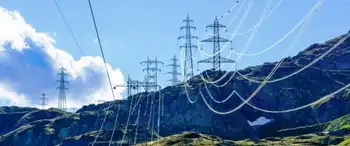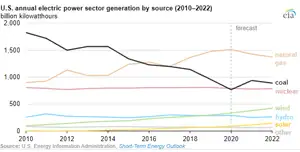Utilities shutting off more customers in 2005
PITTSBURGH, PENNSYLVANIA - While many Pennsylvanians are welcoming the recent hot weather, some may still be trying to escape the toll of the cold winter that came before.
The number of consumers who had their utilities shut off in the first four months of this year more than doubled from the same period last year, according to state Rep. Camille George, who released the figures from the Pennsylvania Public Utility Commission.
During the first four months of 2005, 46,623 households in Pennsylvania had their utilities terminated, a total increase of more than 113 percent from last year.
Locally, Duquesne Light Co. increased the number of service terminations by 65 percent between 2004 and 2005, Allegheny Power by 149 percent and Columbia Gas of Pennsylvania by 231 percent.
The growing number of shutoffs is due to Act 201, a controversial bill passed in November that allows utility companies to be more active in ending service for customers who do not pay their bills.
While some say that the new numbers are a sign of the devastating effect of Act 201 and signal even worse problems in the coming winter, others argue that the law is finally making consumers accountable for their bills in a state that previously had lenient laws about utility payments.
Under the new act, companies can shut off service during the winter for families with income above 250 percent of the federal poverty guidelines without prior approval from the PUC. They can begin to shut off service for any customer who is not paying bills on April 1.
The law also holds all adults in a residence responsible for paying the utility bill and adds extra checks to ensure that people with bad credit will be held accountable for their bills.
An income of $48,375 would put a family of four 250 percent above the federal poverty guidelines.
Utility companies say the bill was necessary because, as of last June, nonpayment had cost Pennsylvania's 22 natural gas and electric utility companies more than $739 million, which was ultimately absorbed by utility consumers. Many say they didn't start enforcing the law until April of this year, giving consumers the winter to get their affairs in order.
But some consumer advocates say that isn't so.
"Pennsylvania has always been considered a model of having a balanced approach to a company's need for income and consumer's need for protections," said Harry Geller of the Pennsylvania Utility Law Project, a nonprofit advocacy organization based in Harrisburg. "This new bill dramatically changes that."
The bill gained support when Philadelphia Gas Works ran into financial difficulties, and other utility companies joined forces to push for more stringent regulations, Geller said. But there was little sign that the other companies were seeing an increase in delinquent customers, he said, and Act 201 was passed without any public hearings.
Some social workers say the new law hurts a different type of consumer because of its focus on a slightly higher income bracket. Cindy Grundy, of Focus on Renewal in McKees Rocks, has been seeing people who had good jobs - like those at US Airways - and are now in danger of losing their housing and can't pay their energy bills.
Grundy said she had worked with a woman who worked nights and had to leave her teenage daughter home alone in the evenings without electricity because she just didn't have the money to catch up on her payments.
Grundy said the new law is too tough on people on the cusp of the income bracket.
But regardless of their income brackets or the amount of their utility bills, all consumers can get help if they apply for it, said Robert Boulware, spokesman for Columbia Gas. This law was designed to target individuals who had the financial means to pay the bills but were not doing so.
Utility companies say they've given consumers more than enough chances to pay their bills. They contribute to a number of programs to help low-income customers in need, offer some of the lowest rates in the country, and before this bill, had looser laws than West Virginia, Maryland, Ohio and Virginia, said Allegheny Power spokesman Fred Solomon.
"People whose service is terminated are frequently people who just aren't working with us," he said.
Out of all of the people that the company put on payment plans, half were breaking their agreements.
"People were just getting away with too much," said Petrina Sichak, utilities specialist at North Hills Community Outreach, a nonprofit agency that provides services to people in need. She saw customers who learned how to game the system - paying enough to keep the utilities on in winter but never quite enough to cover the bills.
But while she understands why the utility companies wanted to pass the bill, she has seen an increase in clients coming in for help.
A few weeks ago, she helped a family of six who had their electricity turned off for two days after they defaulted on an assistance program. They had to worry about preventing the food from spoiling while taking care of three children and a baby and trying to find employment.
"There wasn't the wiggle room that they would have had at one time," Sichak said.
Related News

Melting Glass Experiment Surprises Scientists by Defying a Law of Electricity
LONDON - A team of scientists working with electrical currents and silicate glass have been left gobsmacked after the glass appeared to defy a basic physical law.
If you pass an electrical current through a material, the way that current generates heat can be described by Joule's first law. It's been observed time and time again, with the temperature always evenly distributed when the material is homogeneous (or uniform).
But not in this recent experiment. A section - and only a section - of silicate glass became so hot that it melted, and even evaporated. Moreover, it did so at a much…




